
What is it? It’s Halo 3, on PC.
Expect to pay: £30/$40
Developer 343 Industries
Publisher Xbox Games Studios
Reviewed on GTX 1060, AMD Fx-4130, 8GB RAM
Multiplayer? Up to 16 players
Link Official site
Long ago, on some long lost Windows Vista machine, Microsoft’s big green army man promised us he’d “finish the fight”. Then, 13 years passed, and PC players never found out what happened to Master Chief’s merry band of army-lads, floating orbs and squid-faced Keith Davids. Now, with Halo 3’s arrival via The Master Chief Collection, the circle is finally complete. The old soldier might be showing a few wrinkles, but the closing act of Bungie’s original trilogy still knows how to go out with one hell of a bang.
Besides a bump up to higher resolutions and 60fps, Halo 3’s visuals have been largely untouched. That’s a good thing, I reckon. Halo 2: Anniversary’s rework was stunning, but that was an ugly game that needed sprucing up. Halo CE: Anniversary, meanwhile, was a haphazard mess that buried the original’s brilliant broad strokes with ill-considered effects and greebly assets.
Halo 3 holds up, mostly. Yes, the character models look real rough. Texture quality, particularly on the Earth levels, betrays the game’s 2007 release. But christ, if Bungie can’t bash out some absolutely stunning vistas. Shattered highways wrap through towns around a vast, drained ocean. Brutalist temples jut out of sweeping deserts, as city-sized cruisers duke it out in the sky. Long before Destiny, Bungie was still best-in-class when it came to jaw-dropping skyboxes.
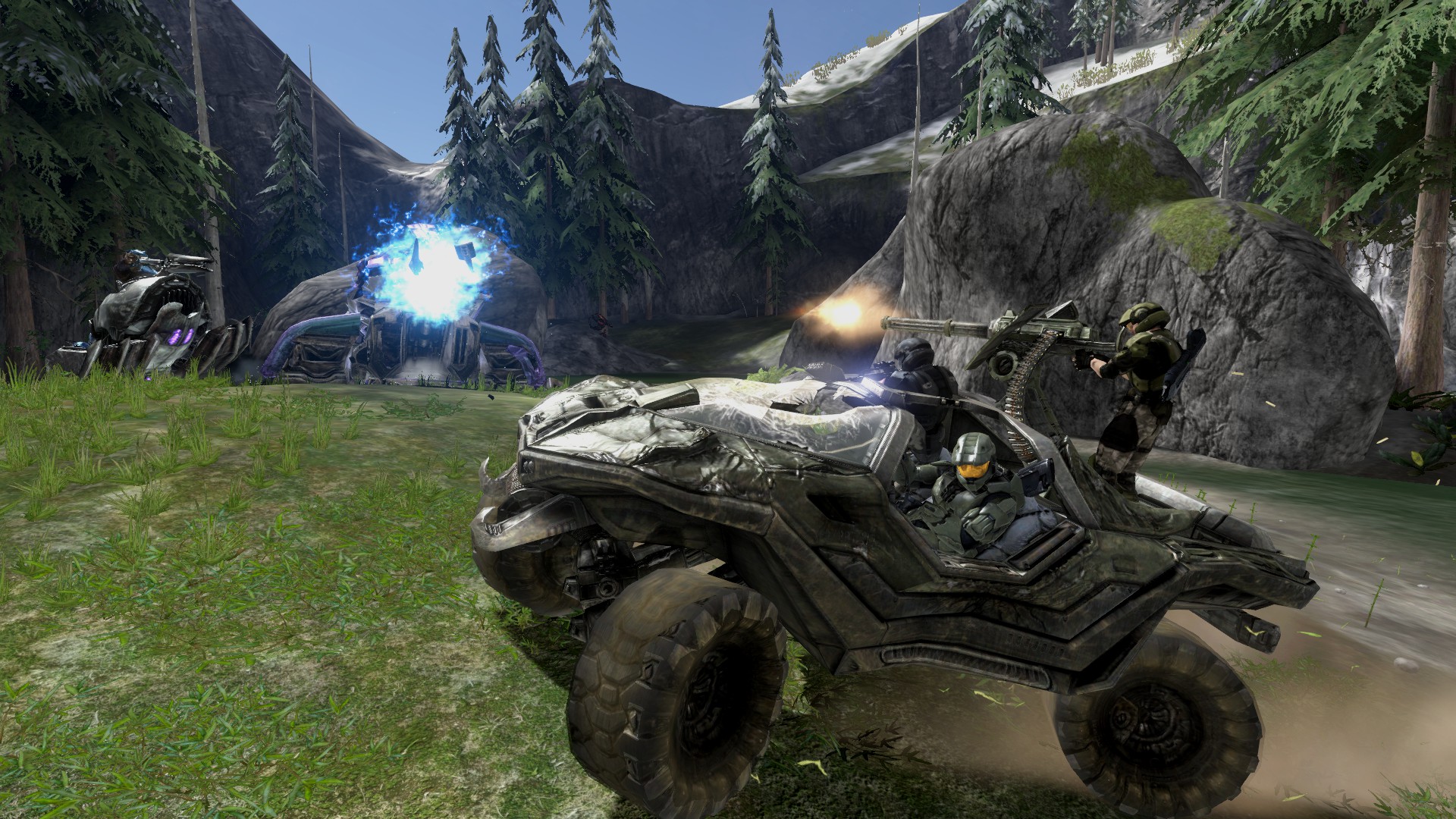
But this is a shooter, not a sightseeing trip. Halo 3 is the Bungie sandbox at its best. Every fight is a playground—mobs of enemies to deal with using a smattering of weapons and ‘Equipment’ (one-shot tools like bubble shields and grav-lifts). The first level’s narrow jungles give way to massive arenas, where deadlier weapons and tougher vehicles are thrown into the mix. Sooner than expected, the parasitic Flood throw in their own wrench by bringing dead fighters back as screaming, shambling infected.
This sandbox hits its peak with Scarab fights, the shooter’s answer to Shadow of the Colossus. Bungie knows that these massive, walking crab battles are the best bits, which is why you fight them four times over the course of the campaign. The first gives you a squad of bazooka-toting bikers to swarm around them with, kicking out their knees with high explosives. The last—a brawl against two of these beasts—gives you a leg-up with the Hornet VTOL. But then, why take the easy option when there’s a Warthog and a massive, well-placed ramp?
It’s a form of shooter we don’t really see on PC. Even Destiny 2, which shares plenty of Halo’s DNA, is too wired into the loot-shoot grind to nail this kind of playful murder toybox. Every weapon—even the woefully stripped-down Halo pistol—has a use. Every piece of equipment throws a new wrench into a fight, whether you’re disabling tanks with power drains or blocking routes with deployable cover to keep a Flood swarm at bay in a fungal meat-prison.
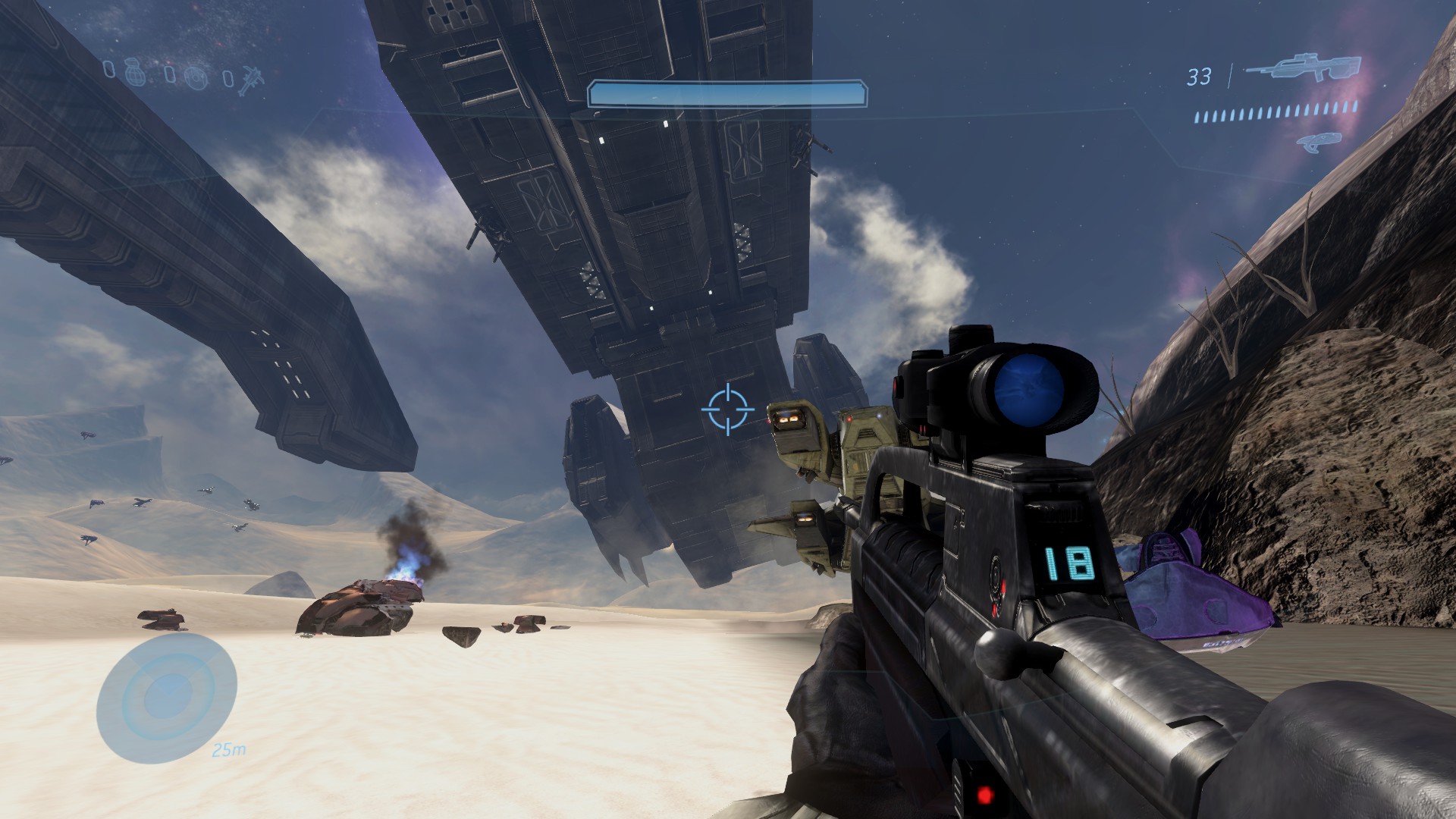
It’s a spirit that carries over into the game’s now-legendary multiplayer scene, even if—once again—carbines and battle rifles throw that balance into flux. Thankfully, Halo 3’s precision shooters have been toned down from the first game’s pistol and the sequel’s BR. They’re still deadly with a mouse, but not quite so much that other weapons don’t get their time to shine.
Like the campaign, there really isn’t anything quite like Halo multiplayer. Smaller rounds have their charms, weaving through phenomenal maps to outflank foes, memorising the routes and timings for weapons like the energy sword or rocket launcher. But It’s big team battles that always hit the hardest—rolling tanks and chaotic explosions that less resemble Battlefield than they do a military toybox thrown haphazardly over stunning alien landscapes.
There really isn’t anything quite like Halo multiplayer.
It’s my favourite version of the Halo formula. The right amount of weapons on the best lineup of maps, without streamlined loadouts and abilities that would crop up in later games. But as I’ve found with previous MCC releases, it’s not something I’ll stick with beyond a light distraction. Rounds, especially on larger modes, linger a little too long—and with teams often finding themselves unbalanced from the start, it can be a chore to sit through a 20-minute game you know you’ve lost.
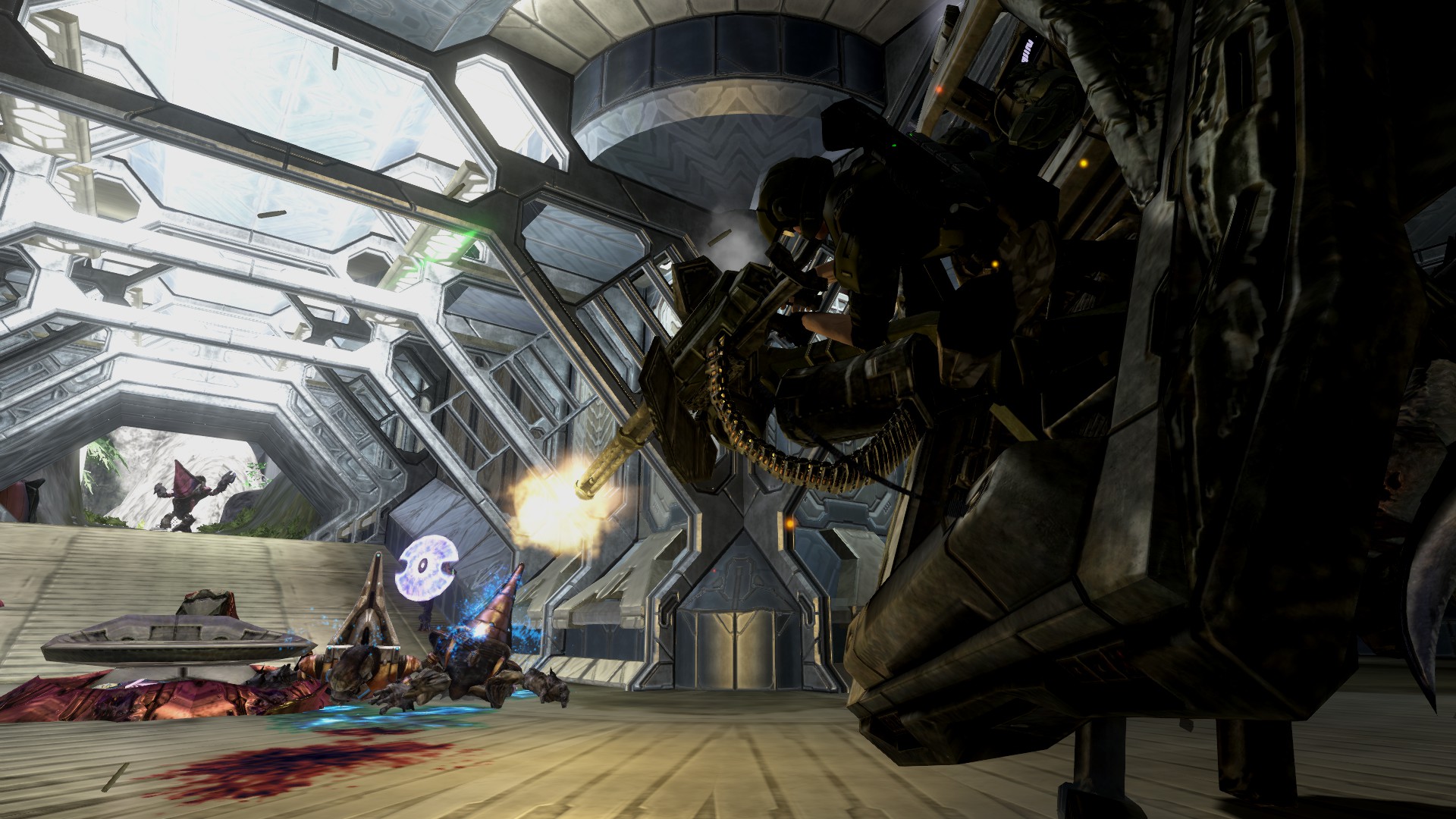
Maybe I’ve been spoilt by a decade of refinement in the competitive shooter space. Halo 3 rejects the part of your brain that wants to master a game and make rank numbers go up—something that isn’t helped by the MCC’s series-spanning levelling system. It is truly best approached as a big daft playground of tanks and aliens.
With each new release, though, the problems with the Master Chief Collection frontend become harder to ignore. Don’t get me wrong, the port itself is good enough. In the moment, I’m comfortably playing Halo 3 with a resolution, framerate and field-of-view befitting a modern PC release. But subtitling is inconsistent, audio balancing has been thrown off, and I’d really hoped 343 would have added alternative keybind options by this point.
With each new release, though, the problems with the Master Chief Collection frontend become harder to ignore.
The real issue is philosophical. The MCC frames all its content through ‘playlists’—sets of singleplayer levels, firefight maps and competitive modes spanning the entire package. In multiplayer, that works—it’s truly brilliant to be able to jump into a random game of Capture The Flag across an entire series’ worth of maps, each bringing a distinct arsenal of weapons and vehicles.
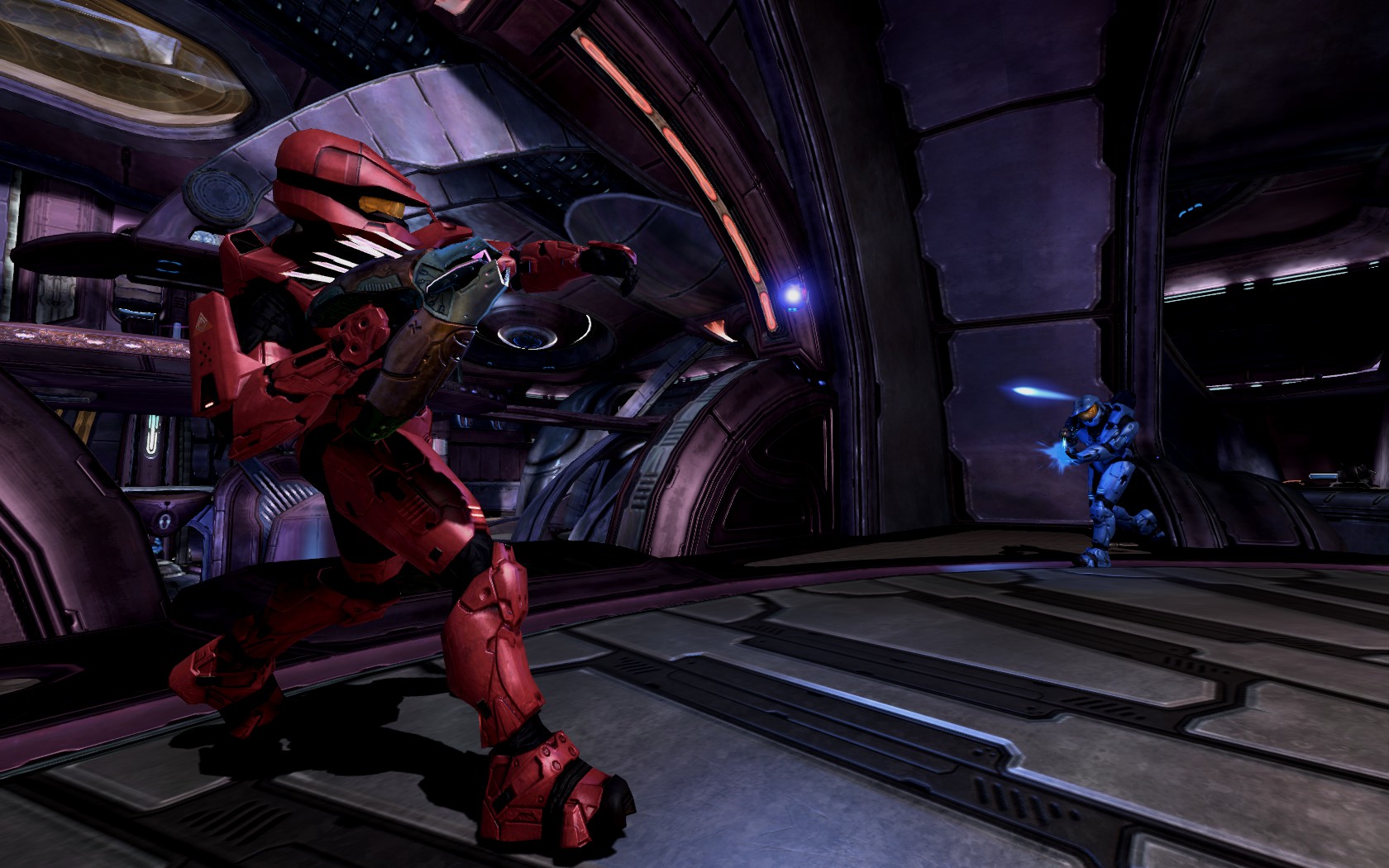
In singleplayer, however, it robs each arc of its identity. When an overdesigned loading screen reminds me of par times and scoring metrics, I’m made all-too-aware that I’m not playing Halo 3. Not really. I’m playing the Halo 3 B-side on a Master Chief’s Greatest Hits album.
But it is still Halo 3, on my PC. Sure, it’s looking a little bruised, and the Master Chief Collection isn’t an ideal package. After all this time, there’s still nothing quite like Halo 3—and it’s about damn time we were given the chance to finish the fight.
Read our review policy
The genre-defining shooter holds up fantastically, despite an imperfect package.

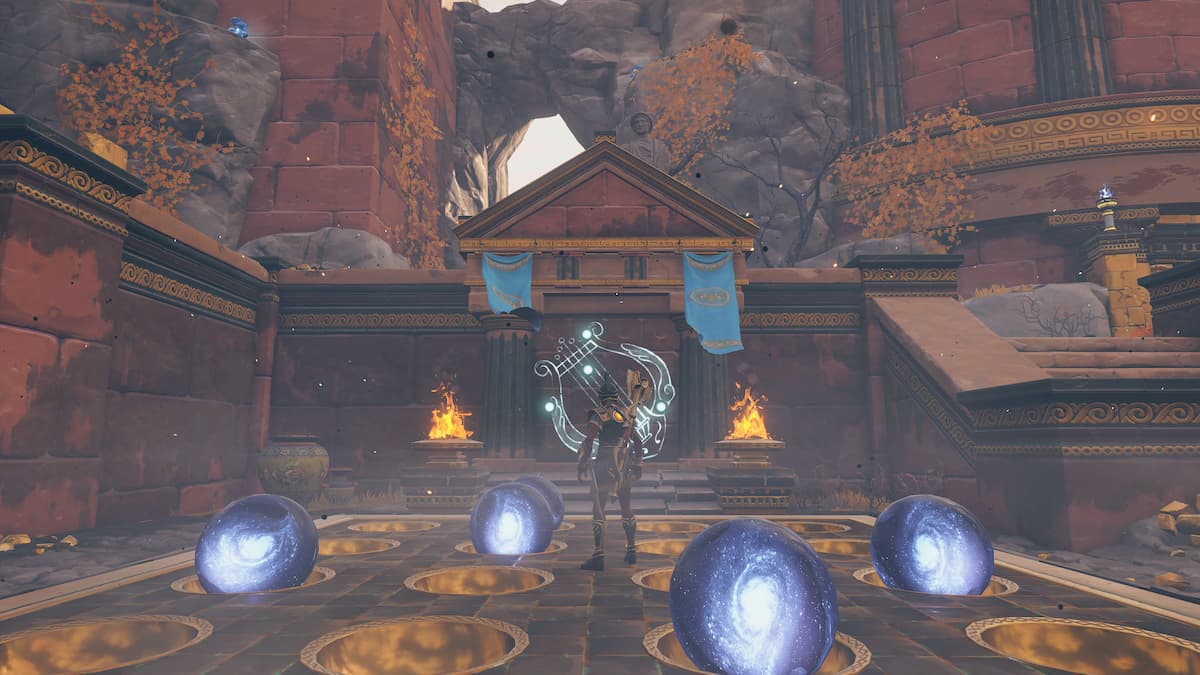
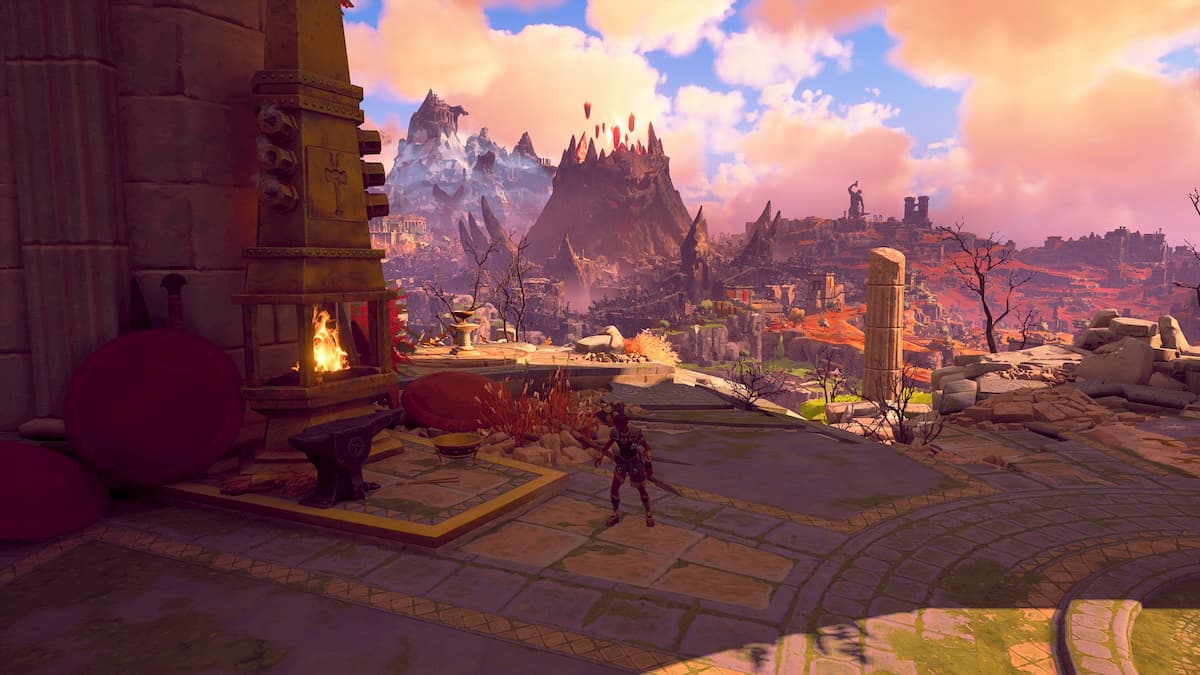
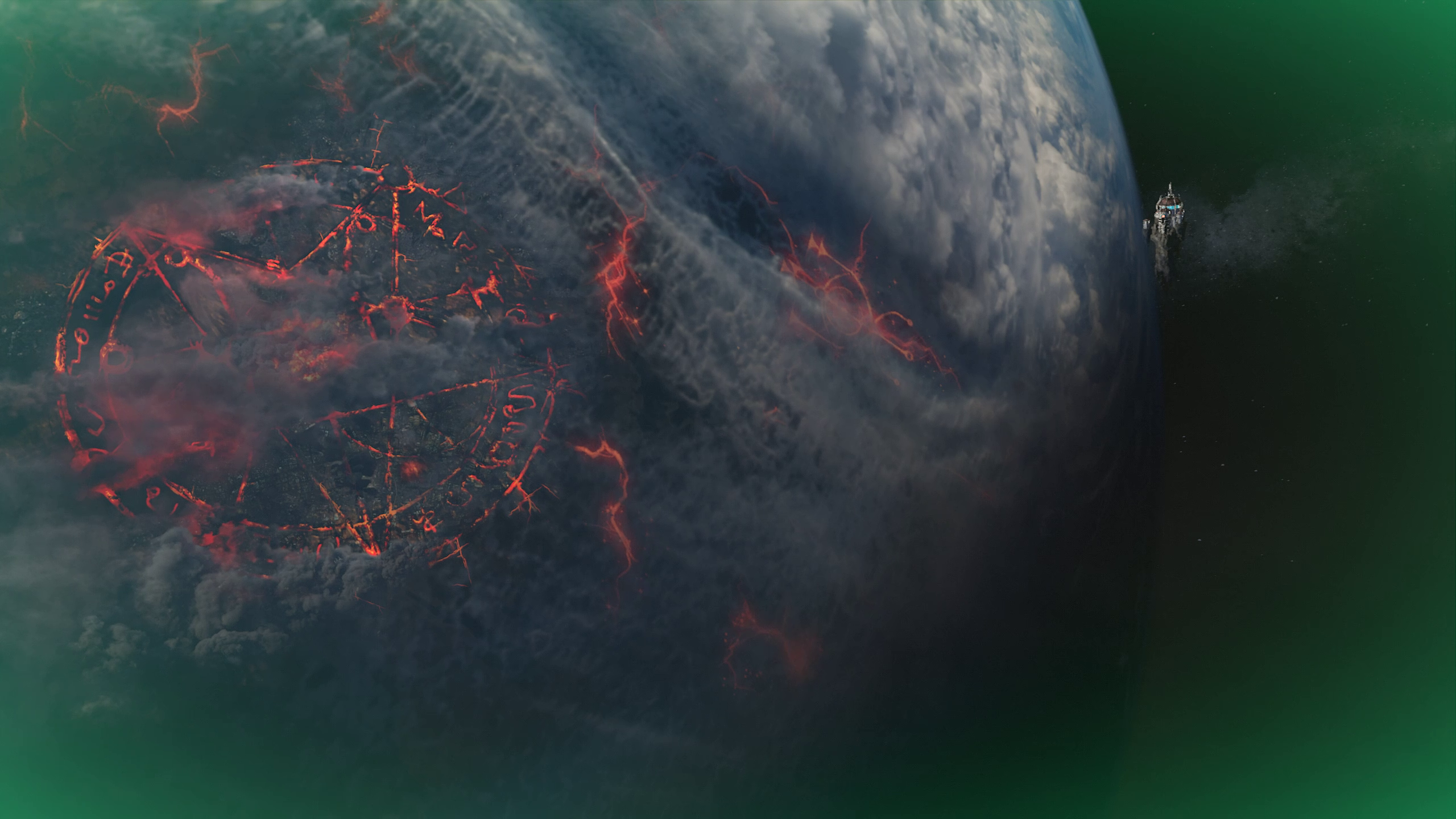
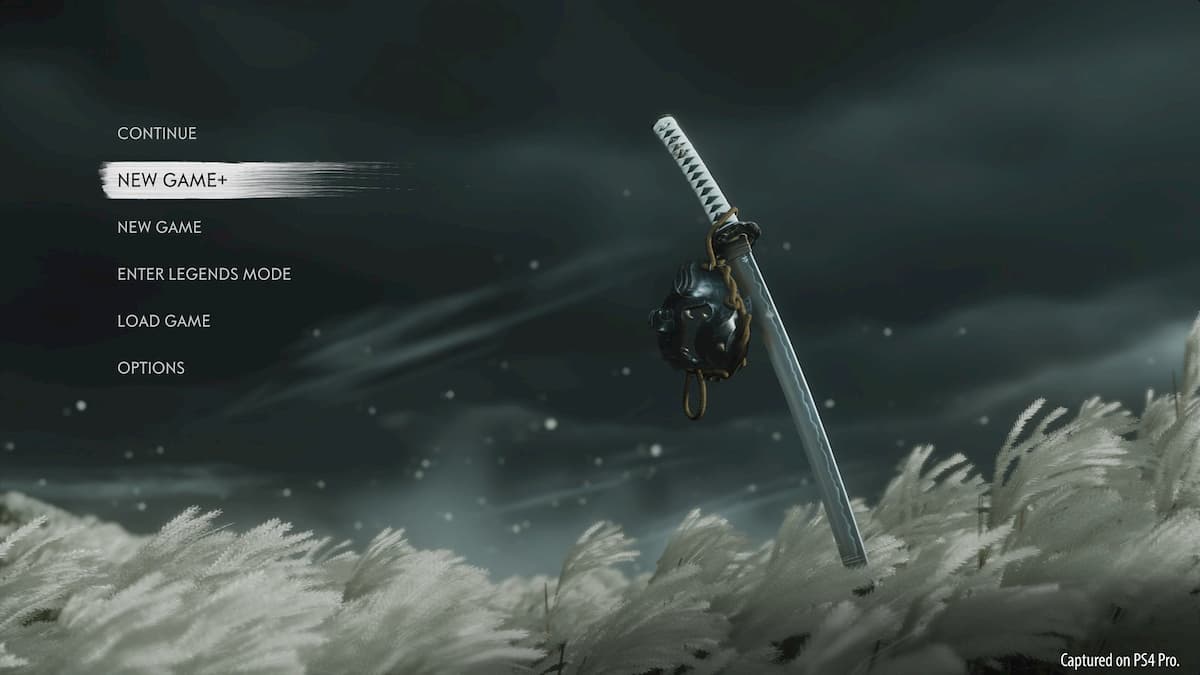


More Stories
Doom Eternal review
Review: The Last of Us Part II complicates the idea of right and wrong
Dirt 5 review